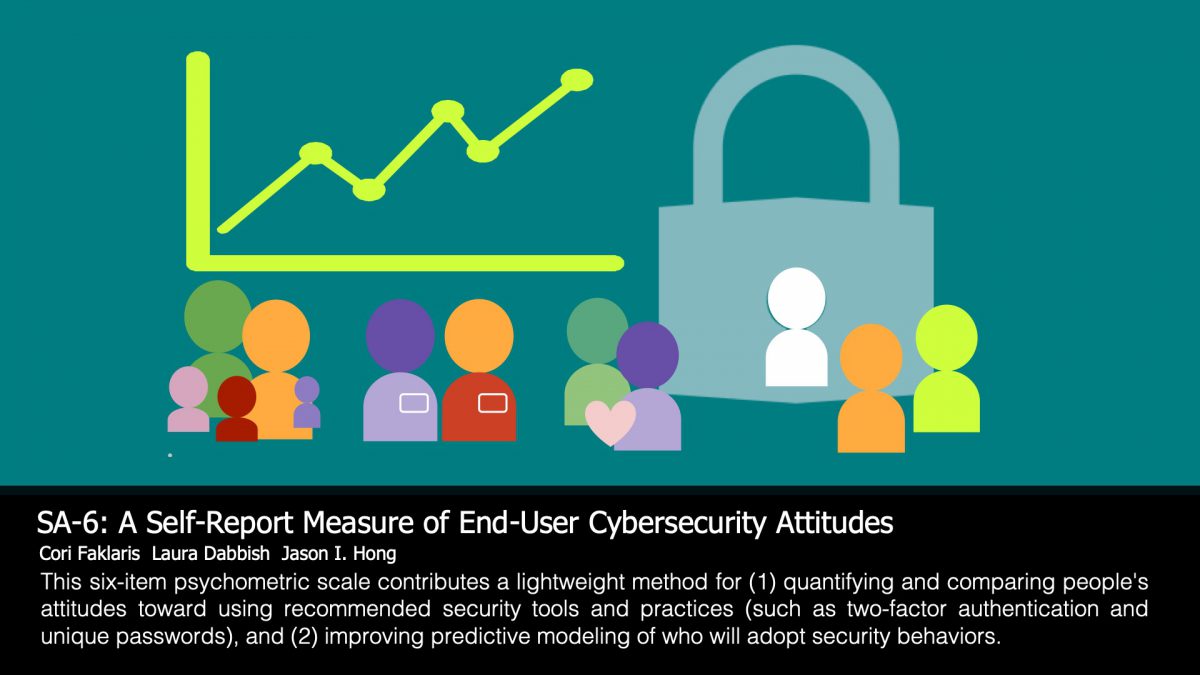This month is a personal milestone – my FIRST first-author usability research paper is being published in the Proceedings of the Fifteenth USENIX Symposium on Usable Privacy and Security (SOUPS 2019).
I will present on Monday, Aug. 12, in Santa Clara, Calif., USA, about my creation of the SA-6 psychometric scale. This six-item scale is a lightweight tool for quantifying and comparing people’s attitudes about using expert-recommended security measures. (Examples of these include enabling two-factor authentication, going the extra mile to create longer passwords that are unique to each account, and taking care to update software and mobile apps as soon as these patches are available.)
The scale itself is reproduced below (download the PDF at https://socialcybersecurity.org/sa6.html ):
- Generally, I diligently follow a routine about security practices.
- I always pay attention to experts’ advice about the steps I need to take to keep my online data and accounts safe.
- I am extremely knowledgeable about all the steps needed to keep my online data and accounts safe.
- I am extremely motivated to take all the steps needed to keep my online data and accounts safe.
- I often am interested in articles about security threats.
- I seek out opportunities to learn about security measures that are relevant to me.
Response set: 1=Strongly disagree, 2=Somewhat disagree, 3=Neither disagree nor agree, 4=Somewhat agree, 5=Strongly disagree. Score by taking the average of all six responses.
If you are a researcher who can make use of this work, please download our full research paper and cite us as follows: Cori Faklaris, Laura Dabbish and Jason I. Hong. 2019. A Self-Report Measure of End-User Security Attitudes (SA-6). In Proceedings of the Fifteenth Symposium on Usable Privacy and Security (SOUPS 2019). USENIX Association, Berkeley, CA, USA. DOI: 10.13140/RG.2.2.29840.05125/3.
Many thanks to everyone who helped me develop and bring this project in for a landing, particularly Laura and Jason, Geoff Kaufman, Maria Tomprou, Sauvik Das, Sam Reig, Vikram Kamath Cannanure, Michael Eagle, and the members of the Connected Experience and CHIMPS labs at Carnegie Mellon University’s Human-Computer Interaction Institute. Funding for our Social Cybersecurity project is provided by the U.S. National Science Foundation under grant no. CNS-1704087.

